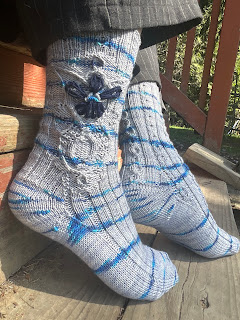Cup Altering Assignment
Do we start with the good news? After working on the Rafale for the last couple months, I think I now have a fitting band that I can reliably wear.
Now the rough news. The assignment this month is to take the cups we fit last year and use them as a base for making new cups with different seam lines. Um, I did not get the cup to fit last year. I followed the instructions for altering it and I think it was a fitting death spiral.
Last week was Thanksgiving in the USA, and I took the time off schooling completely to entertain guests and then veg on Blue Prince (y’all I did get to Room 46, I’m working on the next phase).
Last night, I couldn’t sleep, so I took the time to listen to and record my coaching meetings with this year’s fabulous teacher. I think I know why I couldn’t get the cup to fit with so much help. Every time the conversation would circle round the idea that there are differing rib cage shapes and therefore the bust on a particular shape has differing needs. Then, I would alter and sew up a cup, and be instructed back towards the shape that the teacher knows. It was like a vortex. I see it better now. I wonder what notes she was checking to prepare for the meeting with each individual student.
My lovely teacher has a flatter ribcage (oval shape side to side), while mine has shape, including serious rib flare starting just under the bra band. We would discuss things like her cups need the bust point centered in the cup, but that gives me serious east-westing. She keeps the inner side of the cup rather flat, with most shaping on the horizontal seam, and the outer side of the cup has seam or darts to give it a rounder shape. If I wore that, I’d be giving myself the shape I have lying down.
After pondering this, and needing a cup to begin this month’s project with, I’m thinking of revisiting that cup that never worked. This time, I’ll fuse the outer 2 pieces, and put the shaping in the area I need it: from bust point and in. Then, I can go back and add a seam to the outer cup to give it the look it is supposed to have.
And, then I’ll have a place to start from.


